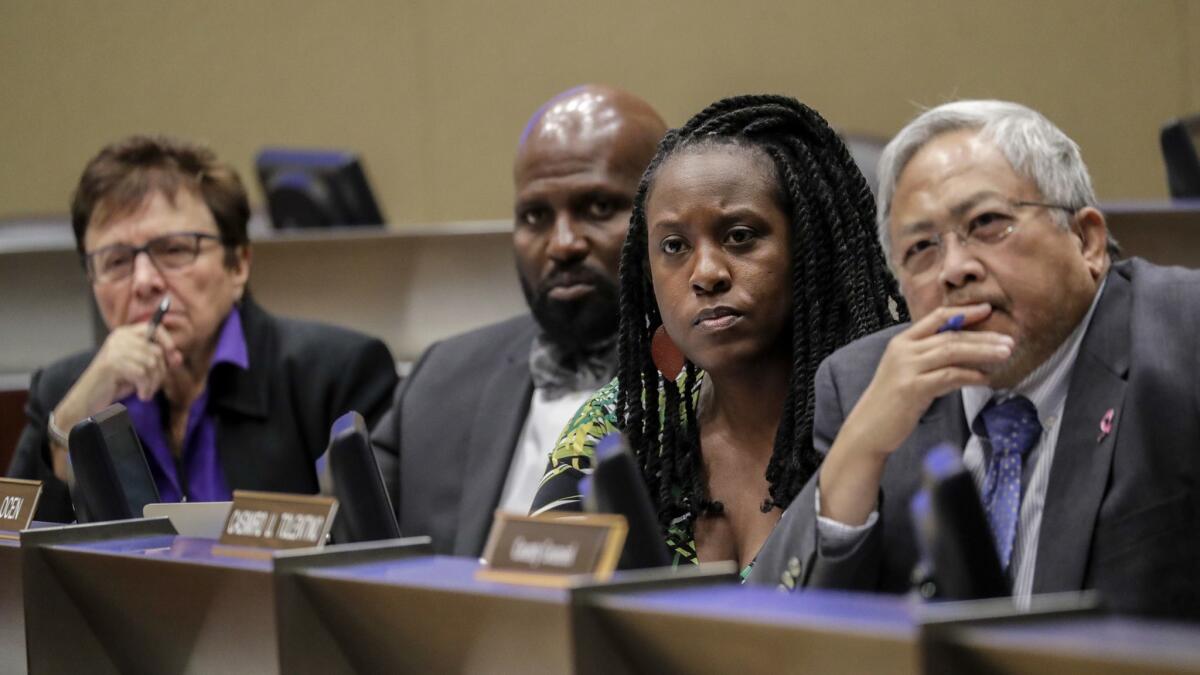L.A. County needs real Sheriff’s Department oversight. That means subpoena power

- Share via
A series of vicious jail beatings and a federal probe into obstruction of justice by Sheriff Lee Baca started Los Angeles County down the road to more meaningful and muscular oversight of the sheriff’s office. County supervisors hired an inspector general in 2014 and later created the Civilian Oversight Commission to ensure that no future sheriff would be able to operate with such impunity. But the answer to a key question was put on hold: How could any of the new appointees truly hold the sheriff accountable without access to the department’s internal files and personnel?
Or to put it another way: Shouldn’t the inspector general and the oversight panel have subpoena power in order to compel the sheriff to turn over the information they need?
No, said Baca’s successor. Sheriff Jim McDonnell argued that it would make far more sense for the sheriff and the inspector general to work out protocols for voluntarily sharing documents. That way they could avoid an adversarial relationship and all the accompanying lawsuits that would be sure to follow.
But “adversarial” is an understatement in describing the relationship between new Sheriff Alex Villanueva and anyone tasked with monitoring his performance, including Inspector General Max Huntsman, the Civilian Oversight Commission and the Board of Supervisors. Huntsman reports that Villanueva cut off or sharply restricted access to records, meetings and department computers. Villanueva’s department is conducting a criminal investigation of Huntsman and members of his staff over alleged theft in connection with the records they did obtain and the computers they did access.
Subpoena power is a missing and vital — and overdue — link in civilian oversight of this sheriff.
Several efforts to remedy that defect are in motion. In the March 3 election, voters will consider a ballot measure to grant the civilian commission subpoena power. On Tuesday, the supervisors will consider whether they can and should grant the commission subpoena power regardless of the election outcome. Meanwhile, the board is researching whether it can grant subpoena power to the inspector general too.
There are serious legal questions. If the board can’t directly compel the independently elected sheriff to turn over records or make employees available for questioning, how could it grant that power to someone else? How could voters do it?
The best way to find out is to proceed. Civilian oversight of any law enforcement agency is an integral component of democracy and the proper administration of justice. Without the power to compel, an oversight body amounts to little more than a suggestion box. Real oversight requires subpoena power.
More to Read
A cure for the common opinion
Get thought-provoking perspectives with our weekly newsletter.
You may occasionally receive promotional content from the Los Angeles Times.









